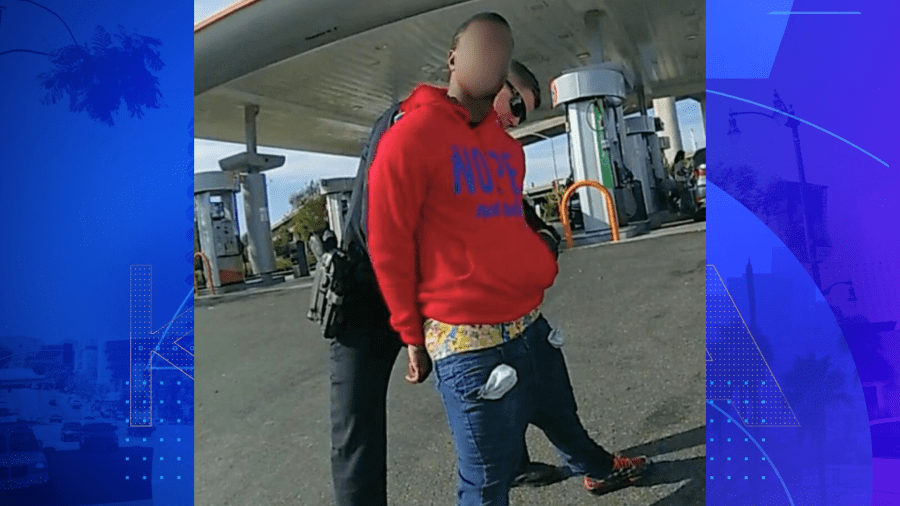A suspect was arrested at an Orange County hotel for alleged sex trafficking and pimping.
The male suspect was identified as Winston Jones, 33, from Los Angeles, according to the Irvine Police Department.
Undercover agents converged at an Irvine hotel after receiving information that a woman was suspected of being trafficked for sex work.
As Jones and the female victim arrived at the hotel, the woman was “detained and safely removed from the situation” by officers.
The suspect was taken into custody at the scene. He was arrested on several human trafficking-related charges including pimping and pandering.
The operation was a joint effort by Irvine Police’s Special Investigations Unit and the Orange County Human Trafficking Task Force.

“This case highlights the important work [the task force does] to hold perpetrators accountable and help victims emerge from crisis by providing them with the appropriate resources,” police said.
“Everyone has the potential to discover a human trafficking situation,” said U.S. State Department officials. “While the victims may sometimes be kept behind locked doors, they are often hidden right in front of us at, for example, construction sites, restaurants, elder care centers, nail salons, agricultural fields, and hotels.”
It’s important to note that victims may be under threat by traffickers including the fear of deportation or harm to the victim or their family members.
Officials said the desire to avoid consequences can be “so powerful that even if you reach out to victims, they may be too fearful to accept your help. Knowing indicators of human trafficking and some follow-up questions will help you act on your gut feeling that something is wrong and report it.”
Some human trafficking indicators to watch out for, according to the U.S. Department of Homeland Security, include:
- Does the person appear disconnected from family, friends, community organizations, or houses of worship?
- Is there a sudden or dramatic change in behavior?
- Are they disoriented or confused, or showing signs of mental or physical abuse?
- Are they fearful, timid, or submissive?
- Do they show signs of having been denied food, water, sleep, or medical care?
- Are they often in the company of someone to whom they defer? Or someone who seems to be in control of the situation, e.g., where they go or who they talk to?
- Do they appear to be coached on what to say?
- Are they living in unsuitable or poor conditions?
- Do they lack personal possessions and appear not to have a stable living situation?
- Is there freedom of movement? Can they freely leave where they live or are there unreasonable security measures?
- If they’re a child, have they stopped attending school?
“Human trafficking can happen to anyone but some people are more vulnerable than others,” according to the National Human Trafficking Hotline. “Significant risk factors include recent migration or relocation, substance use, mental health concerns, involvement with the children welfare system and being a runaway or homeless youth. Often, traffickers identify and leverage their victims’ vulnerabilities in order to create dependency.”
More information on human trafficking prevention and emergency help can be found by calling the National Human Trafficking Hotline at 1-888-373-7888 or visiting their website.













